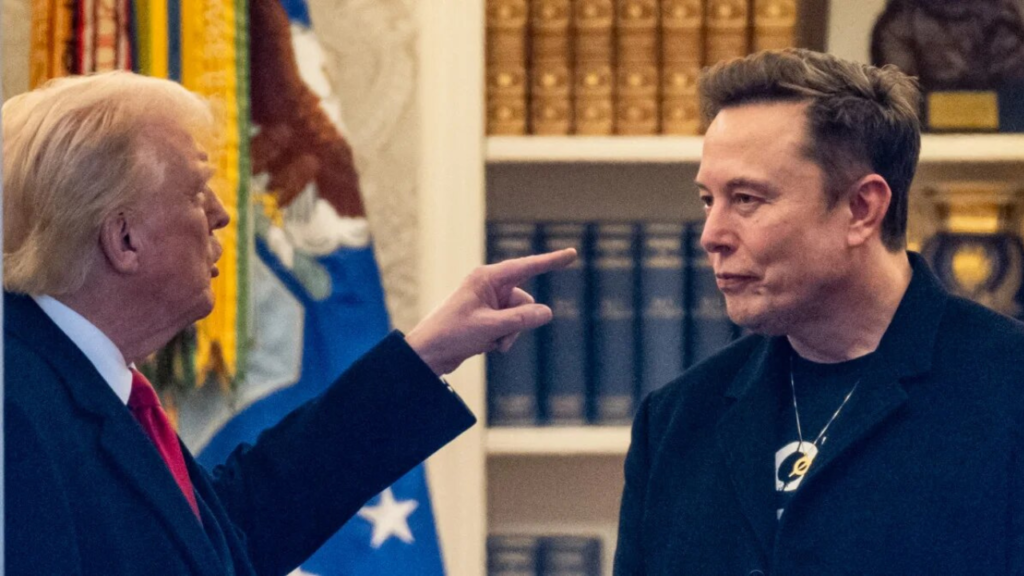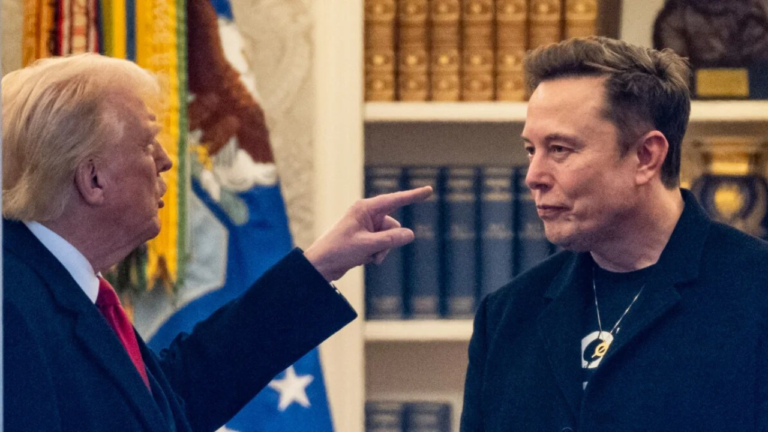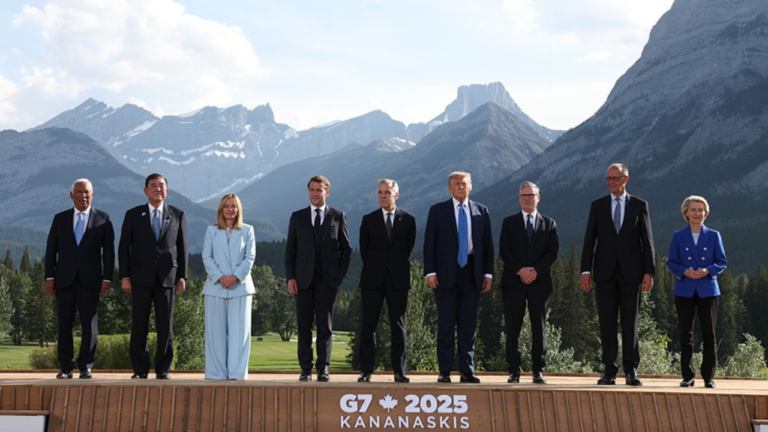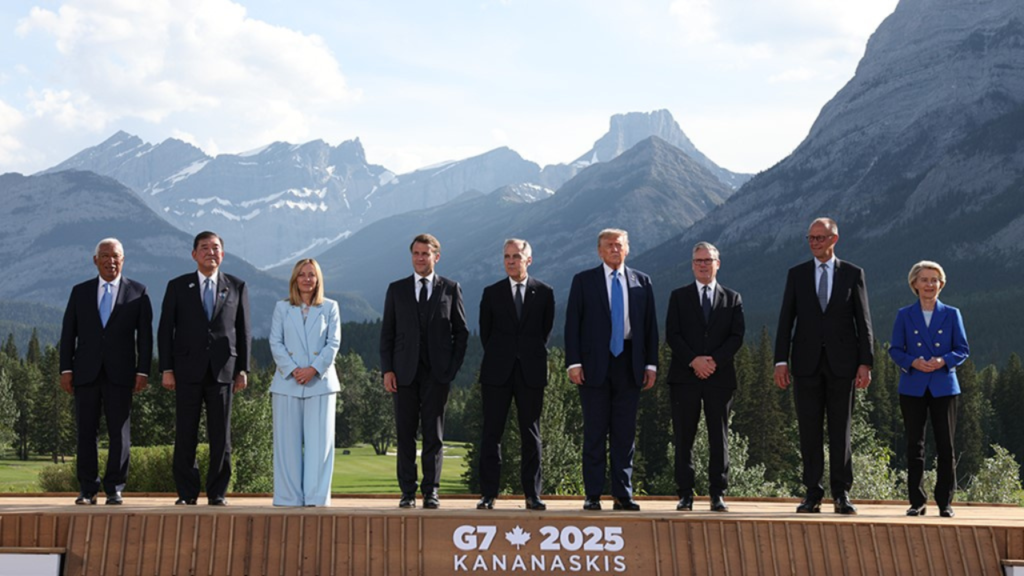The political battle between President Donald Trump and Tesla CEO Elon Musk has emerged as one of the most significant business and political narratives of 2025, rocking financial markets and opening fresh questions about the future of Tesla. What started out as a tactical alignment with Trump’s re-election effort soon evolved into a breakdown after Musk publicly railed against Trump’s tax-and-spending plan, which had called for phasing out the $7,500 subsidy for electric cars by late 2025. Musk’s vociferous opposition prompted an angry backlash from Trump, who vowed to eliminate government contracts with both Tesla and SpaceX. The public backlash, fueled by social media and constant media coverage, has left Tesla’s shareholders stunned and the brand’s reputation bruised.
Tesla’s shares have taken the hit of this high-profile clash. In the wake of the feud, Tesla shares dropped more than 14% in a day, wiping out $152 billion in market value within hours. The firm’s overall valuation has plummeted over $380 billion since the beginning of 2025, making Tesla the year’s worst-performing large-cap stock. Its market capitalization, which was eighth in the world at the beginning of the year, has fallen to tenth position. This sharp slide was not only a response to the political feud but also stemmed from Tesla’s growing problems, such as slowing electric car demand, increased competition from cheaper Chinese EV producers, and a worsening brand reputation because of Musk’s polarizing political stance and comments.
The collapse of the Trump-Musk alliance has had wide-ranging consequences for Tesla’s business opportunities. Investors initially pushed Tesla stock up by almost 30% after Trump won the presidential election in November 2024, hoping for a business-friendly climate and regulatory reforms beneficial to Musk’s businesses. But since November, Tesla shares have seen only a 2.3% return, as opposed to the 20% rise in the overall market, reflecting a sharp change in investor attitude with political risk becoming more evident. The White House, sensing the market disruption, intervened on the reported account by facilitating a call between Musk and Trump to ease tensions, which helped fuel a small rally in Tesla stock. Nevertheless, the larger damage seems enduring, with the shares still down around 20% for the year and confidence among investors undermined.
The policy climate under Trump’s current presidency has turned decisively against electric cars. The president’s executive order to “drill baby, drill” and his enthusiastic endorsement of petroleum-powered vehicles have led to a dramatic decline in EV demand. The proposed repeal of federal tax credits for EV customers promises to further diminish Tesla’s competitive edge in the U.S. marketplace. Meanwhile, Trump’s administration has shown willingness to scrutinize Tesla’s application for tariff exemptions on Chinese-made equipment, creating further uncertainty for its supply chain and costs.
Tesla’s difficulties are also fueled by its own strategic and operational failures. The company recorded a 9% drop in revenue in the first quarter of 2025 from the year before, with automotive revenue down 20%. This downturn is due to both external circumstances, such as the political environment and trade tensions, and internal sources, including brand erosion and consumer reaction to Musk’s political pursuits. While Musk’s political pursuits previously provided Tesla with direct access to key decision-makers in Washington, the very public dissolution of his alliance with Trump has left the company vulnerable to regulatory peril and loss of official sponsorship.
Even with the dramatic sell-off, some analysts think that the long-term effect of the feud on Tesla’s core business could be minimal. They say that although the relationship between Musk and Trump affects investor mood and share price volatility, it might not really change Tesla’s future in the electric vehicle space or its plans in fields such as autonomous driving. The firm’s shares have regained some of their losses, gaining 8% in the week after the first crash as investors guess that the worst of the political damage is done and as Musk publicly apologizes for some of his more inflammatory comments.
Nonetheless, the incident has revealed the vulnerability of the so-called “Musk premium,” the excess value attributed to Tesla on the basis of Musk’s vision and reach. With the company’s fortunes now more aligned with volatile political forces and Musk’s personal brand, investors are rethinking their projections for Tesla’s stability and growth. The drama has also highlighted the dangers of excessive dependence on government subsidies. It underscores the need for Tesla to diversify its markets and reduce exposure to U.S. policy shifts.
As Tesla steels itself for this stormy time, the next few months will be crucial in deciding whether the company is able to get back on track and regain the confidence of investors. Not only has the Trump-Musk spat redefined the prospects of Tesla but it has also highlighted how politics and personality can have such a deep effect on the destiny of even the world’s most groundbreaking companies. The world will be looking to see if Musk will be able to guide Tesla through these times and hold its position as the global leader in transitioning to sustainable transportation.
















